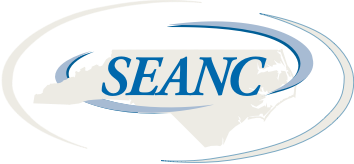SEANC continues fight against pension secrecy, for increased transparency
Jun 26, 2014
SEANC continues to fight back attempts to keep secret the deals Treasurer Janet Cowell is making with Wall Street money managers with North Carolina’s $87 billion Teachers’ and State Employees’ Retirement System. Senate Bill 878, a companion to House Bill 1209, came up in the Senate Pensions, Retirement and Aging Committee meeting on Wednesday.
Senate Bill 878 would ensure that these contracts are kept out of visibility by the public and taxpayers for 10 years after they expire. House Bill 1209 was amended in committee to reduce that time frame to five years, but in practical terms, that is no better for taxpayers as these contracts last, on average, 12 to 15 years and the statute of limitations on securities fraud is only two years – beginning in most cases, the day the contract is signed.
 At the meeting, Sen. Shirley Randleman (R-Wilkes) bravely stood up for transparency, demanding that SEANC Legislative Director Ardis Watkins be allowed to speak against the bill. She also shared with her fellow committee members that she had attempted to get information in 2009 from the Treasurer’s office on real estate holdings with the state pension system and had yet to receive any response.
At the meeting, Sen. Shirley Randleman (R-Wilkes) bravely stood up for transparency, demanding that SEANC Legislative Director Ardis Watkins be allowed to speak against the bill. She also shared with her fellow committee members that she had attempted to get information in 2009 from the Treasurer’s office on real estate holdings with the state pension system and had yet to receive any response.
“As of today, I have never received any information on our real estate holdings,” Randleman said.
Watkins told the committee that the Treasurer’s bills are losers for taxpayers, and that legislators would ultimately be to blame when there is a problem with the retirement system.
“This bill would give a bad, anti-taxpayer policy a legislative seal of approval,” Watkins said. “This bill gives the public nothing more than they have in terms of transparency and no recourse if the state loses employer and taxpayer money.”
After Randleman and Watkins spoke out, Committee Chairman Sen. Tom Apodaca (R-Henderson) adjourned the meeting without a vote.
State employees are required to contribute six percent of their paycheck each month to the state retirement system. It is their contributions as well as that from the N.C. General Assembly that makes the system one of the most well-funded pensions in the nation.
“State employees work hard and we have a right to know what is happening with our money,” said SEANC Retiree Council Chairman Spillman Grice.
Already, the disclosed fees in the state retirement system alone have increased more than 40 percent, and SEANC estimates the fees associated with alternative investments, which are "inherently less transparent" and make up 21.5 percent of the pension’s holdings, have also increased 40 percent or more. However, nobody knows the exact amount because those fees and to whom they’re being paid are being kept secret from the public under the guise of “trade secrets.” Unfortunately what we do know for sure is that more than 50 percent of the alternative investments investigated by the SEC this year have been found to be overcharging fees . What we also know is that North Carolina has at least $1 billion invested in secret deals with Credit Suisse, which recently pleaded guilty to stealing more than $2 billion from the federal government and is not even trusted by the feds to manage pension funds.
These bills, then, would enshrine these practices, meaning that an entire generation of public employees and taxpayers would be kept from knowing what is going on with their money – a fund four times greater than the annual state budget. It also would mean that public employees and taxpayers would have no way to hold anybody accountable – elected officials or money managers – in the case of any crimes or other mismanagement.
Fortunately, it appears as though the tide may be turning against this continued secrecy. SEANC will continue the fight for transparency of your retirement dollars. SEANC members can add their voice to the fight by contacting their legislators and telling them to stop treating North Carolina taxpayers as second class to Wall Street money managers. It’s time to put the “public” back in “public pension.”
